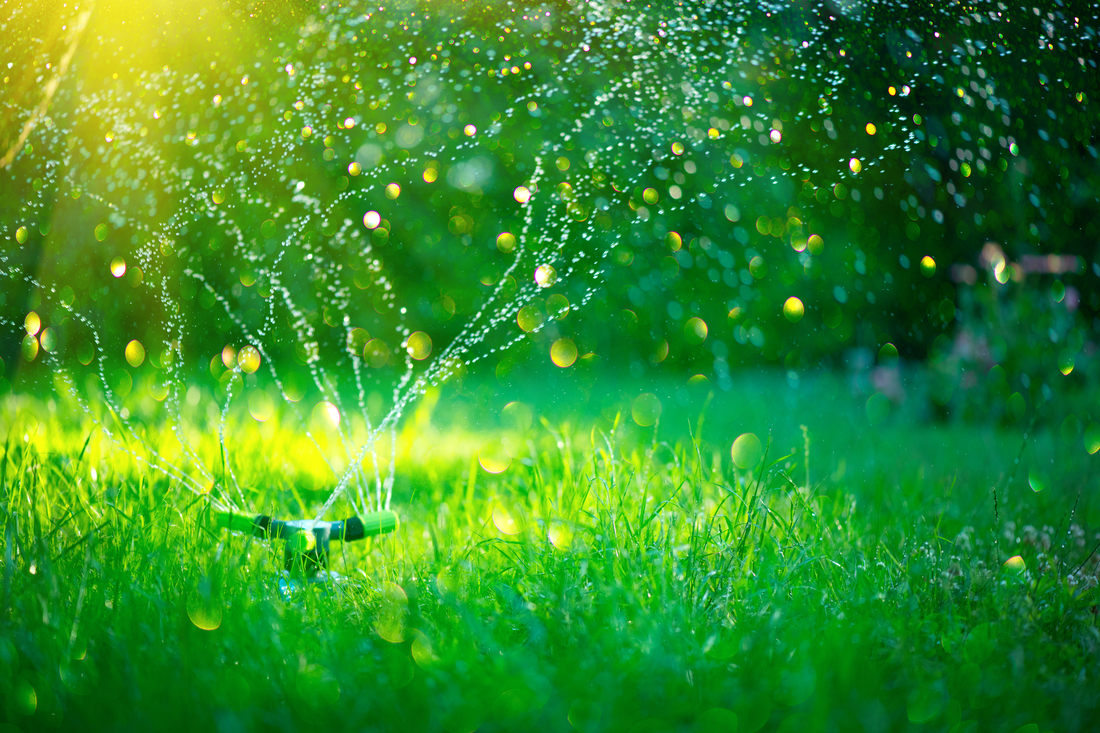Watering Your Lawn
Learn how to save water and money by taking steps to water your lawn efficiently.

Watering Tips: Protecting Your Lawn and Curbing Unnecessary Usage
In the South, it can be challenging to navigate the hassles of lawn care in an unpredictable climate, particularly when hot weather can begin early in the spring and last well past the beginning of fall.
We encourage all of our customers to consider the amount of water it takes to protect your lawns and gardens from hot temperatures and drought conditions.
Did you know that every inch of standing water that collects on an acre of land equals more than 27,000 gallons?
According to Clemson Cooperative Extension, most turf grasses need about half an inch of water in coarse, sandy soil and one inch of water in heavy or fine-textured soil. These amounts will moisten the soil to a depth of four to six inches. However, if you cannot apply this entire amount at once because of water running off from the lawn, apply about half an inch at a time and allow the water to soak in before you continue. In general, bermuda grass needs a total weekly application of about 1 to 1¼ inches of water. Sandy soils often require more frequent watering, for example, ¾ inches of water every third or fourth day. For more information on watering lawns refer to Clemson Extension.
Once you water, do not water again until you observe water deficiency symptoms. Never water the grass every day except during the establishment of newly seeded, sodded or sprigged lawns. Watering every day with a small amount will encourage a shallow root system, making the grass less drought tolerant and more susceptible to soil erosion. Try to stretch the interval between waterings to as many days as possible to encourage the development of deep, extensive roots. Once you choose to water, continue watering. Encouraging the lawn to break dormancy and then not watering again will exhaust the plants and can cause injury.
-
How do I know how much water my lawn really needs?
Most lawns need one-half to one inch per acre, but you should only water those areas that need it. To look for “signs of thirst," visit Clemson Extension.
-
When is the best time of day to water my lawn?
Water early in the morning; it is the most efficient and beneficial time. Water evaporation is minimized so that a high proportion of the applied water is used by the grass plants. Also, early morning irrigation may curtail the development and spread of diseases.
-
How can I callibrate my sprinklers to prevent over watering?
Many homeowners irrigate for a given number of minutes without knowing how much water they are really applying. Save water and money by learning how to calibrate automatic sprinklers. For more information, visit Clemson Extension.
-
Which is better: a traditional sprinkler system or "drip" irrigation?
Drip systems are generally more efficient than conventional sprinklers because they deliver low volumes of water directly to plants' roots, minimizing losses to wind, runoff, evaporation, or overspray. For more information, visit EPA WaterSense.
-
Where can I find the most current information about using my sprinklers?
Clemson Cooperative Extension's information about lawn care is up-to-date and easy to follow.
Seasonal Sewer Averaging Policy
Sewer charges are normally based on water usage. Spartanburg Water uses seasonal averaging to adjust sewer charges for spring and summer residential water use that is not returned to the sewer, such as lawn and garden watering, car washing, and filling pools. Spartanburg Water uses the customer’s average winter billed water consumption to adjust the sewer charge.



